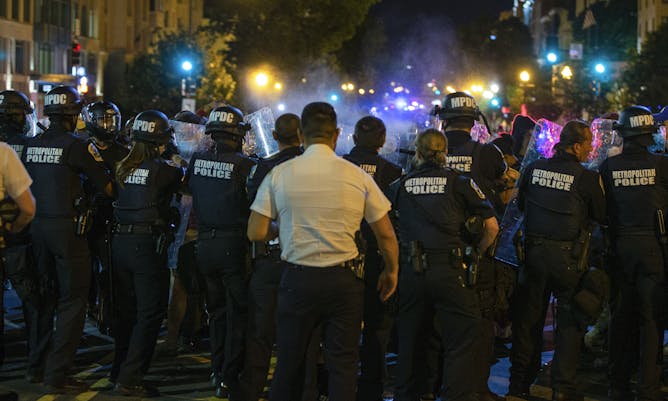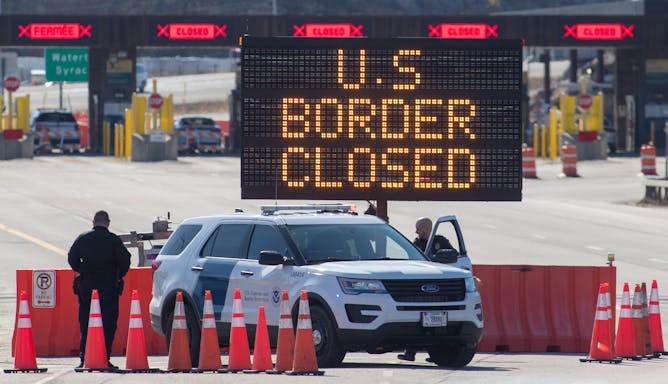|
Welcome to Sunday. Our top five articles from the past week are listed below.
The list makes clear that our readers are struggling during this week of protest to make sense of the deep roots of racism in U.S. institutions, including policing and the health care system. That brought to mind a 2017 article we published by historian Ibram X. Kendi of American University and posted the same week that he won the National Book Award. The article was republished by Blavity, Newsweek and the History News Network back then, and I highly recommend it now.
We would also like to recognize readers who completed our five-part 2020 census newsletter “course,” which you can sign up for here. At the end you can take a fun quiz to test your knowledge. The readers with the highest scores so far – including Phil White, Allison Plyer and D.B. – will receive a Conversation mug.
|

Police work to keep demonstrators back during a protest in Lafayette Square Park on May 30, 2020 in Washington, D.C.
Tasos Katopodis/Getty Images
Jill McCorkel, Villanova University
Many law enforcement agencies fail to adequately investigate misconduct allegations and rarely sustain citizen complaints. Disciplinary sanctions are few and reserved for the most egregious cases.
|

U.S. Customs officers stand beside a sign at the US/Canada border in Lansdowne, Ontario, on March 22, 2020.
Lars Hagberg / AFP via Getty Images
Daniel Baldwin Hess, University at Buffalo, The State University of New York; Alex Bitterman, Alfred State College of Technology, The State University of New York
The US and Canada have had a long, supportive relationship. But the recent closure of the US-Canada border because of the coronavirus underscores a growing divide between the two countries.
|
|
|
-
Mahala Dyer Stewart, Hamilton College
When white parents decide to homeschool, usually it's to provide individualized education to their child. Research shows black parents homeschool for an entirely different reason.
-
Shervin Assari, Charles R. Drew University of Medicine and Science
Police killings of black men gain widespread attention, but black men's life-and-death issues are ignored on a daily basis, a physician who studies health gaps explains.
-
Connie Hassett-Walker, Norwich University
Half a century after the federal government voided Jim Crow laws, the criminal justice system still discriminates against African Americans.
|
|